
Editor’s note: This interview with Chinese cartoonist Badiucao was conducted and written last week, before his debut solo exhibition was cancelled on Friday amid safety fears.
Artist-provocateur Badiucao might have penned some of the most daring cartoons deriding China’s authoritarian and censorial regime, but he considers himself a coward.
This is an assessment of himself that he offers over the phone, in an interview given to HKFP ahead of his debut art exhibition on Saturday, an event he will not attend in person owing to fears of kidnapping and having his cover blown.

“I really admire artists and dissidents who are brave enough to do it openly. I see myself as a coward,” he says from a location he keeps secret. “But I try to explain to myself that I’m just an ordinary guy, I’m not as brave as a hero. And an ordinary guy also deserves a voice.”
The China-born, internationally-based artist has been crafting clever, multilayered cartoons that draw attention to, and lambast the absurdities and disturbing power mechanics of governance in the PRC.
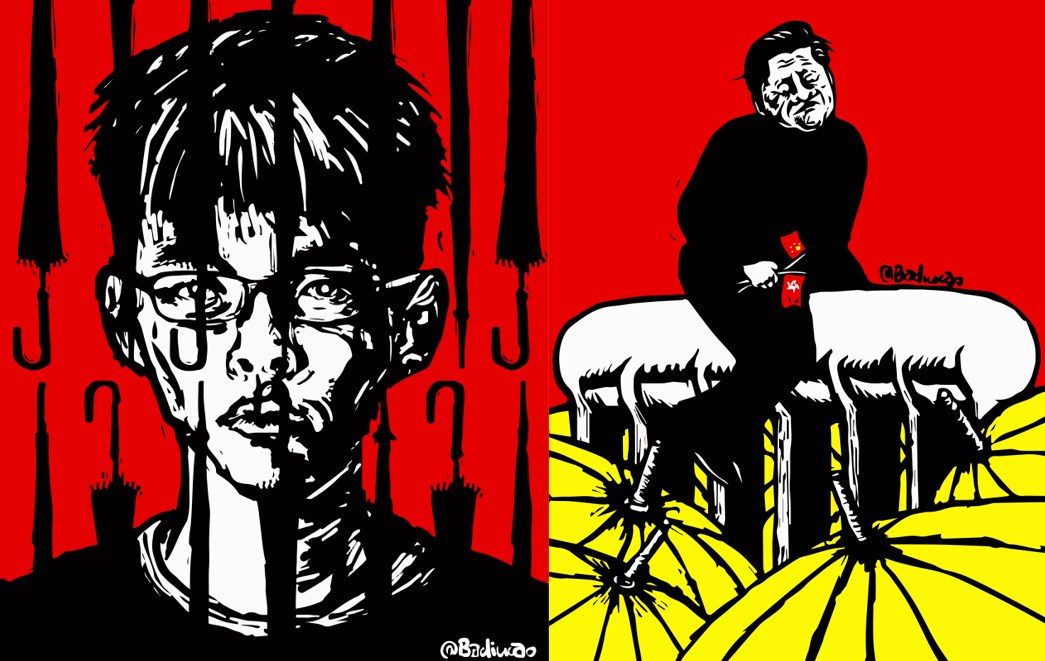
He does so hoping other “ordinary” characters like himself will be encouraged to follow suit. “I want to show that you can protect yourself and speak out and hope that my effort will inspire others to join me.”
Badiucao divulges little about himself, but he is keen to share that he is a horror film enthusiast, with Stephen King’s The Shining ranking as a favourite flick. “It’s a great escape from reality for me. I get to experience the gremlins without any of the consequences,” he says.

A keen sketcher, Badiucao started producing his cartoons over five years ago, buoyed by the rise of online political commentary and satire that had mushroomed across cyberspace at the time. Since then, China’s ever-developing Great Firewall continues to narrow this space for free expression.
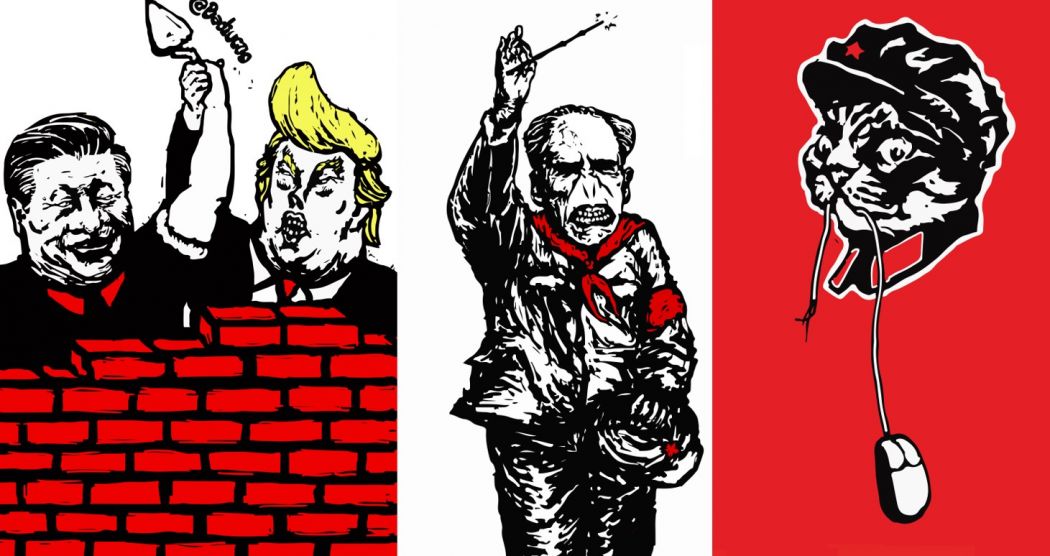
Badiucao is particularly eager to poke fun at the gestures of Facebook, Google and Twitter that demonstrate how these internet giants are willing to upend the values underpinning the internet – free access of information to all – in order to be granted entry into the Chinese market.
“It’s very damaging on a global scale – it’s advancing the Chinese model of governance and social managing,” he says.

Operating incognito and with incisive wit, the artist has collaborated with Amnesty International, China Digital Times while maintaining a regular cartoon column with HKFP. This show marks his foray into the world of 3D installations alongside that of performance.
The wily cartoonist might not be appearing in the flesh, but an avatar – who will convey his thoughts and responses by way of a real-time projection – will act his place. This person will be sat in a so-called “tiger chair,” a torture implement used by the Chinese authorities. The device was purchased online from a Chinese factory, though the artist’s version was modified to appear as a rocking chair.

“The process [of buying the chair] is so, so simple. Anyone can buy this equipment. It’s absolutely absurd, how you can do this,” he says. “This is the reality of China, it’s one of the biggest exporters of torture equipment.”
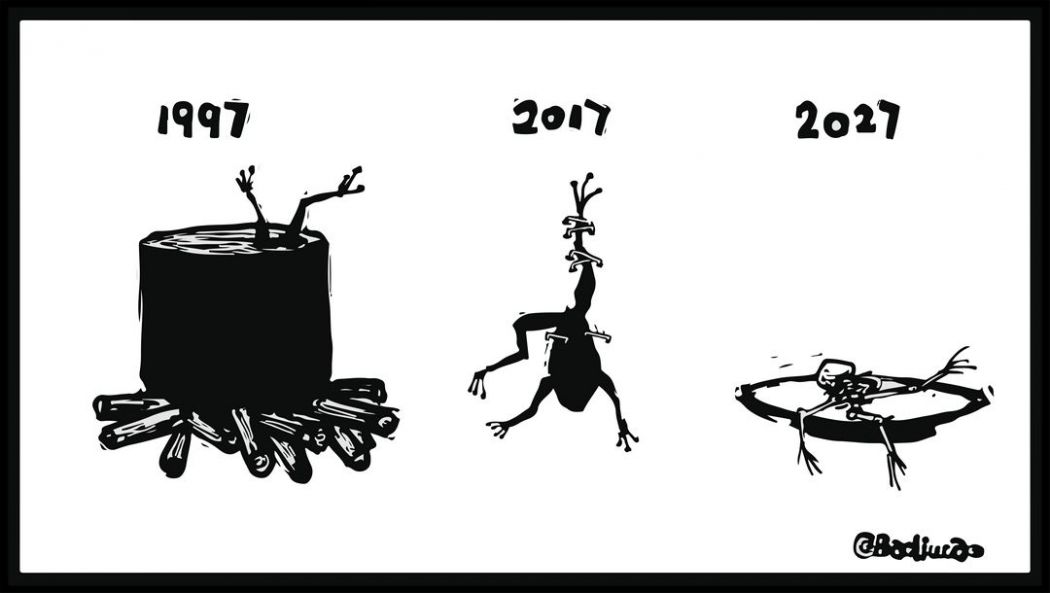
The gesture of bringing the object here adds an extra layer of performance art to the show. “It’s a metaphor for how the brutality of China is coming to Hong Kong, with the help of transportation and some e-shopping”.

The show’s opening coincides with Free Expression Week, and will be attended by two members of Russia’s notorious punk group Pussy Riot, alongside renowned democracy advocate Joshua Wong and Sampson Wong, a local political artist.
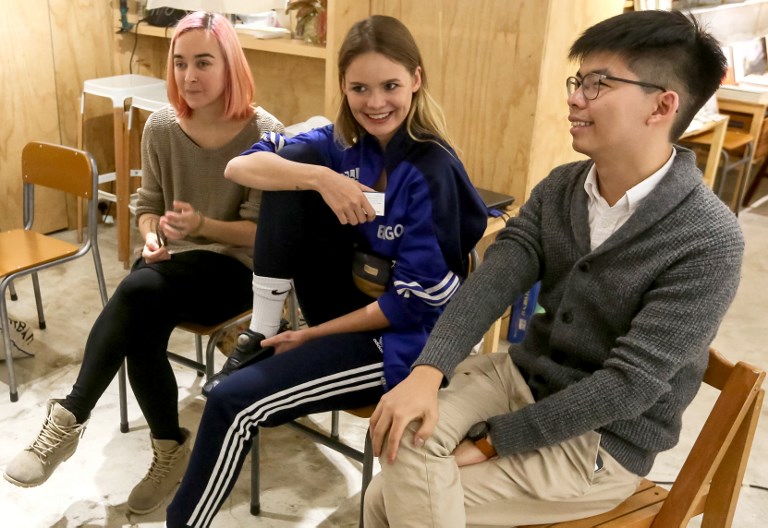
While Badiucao’s concerns extend to the decline of freedom of expression internationally, he feels a particularly strong attachment to Hong Kong, a place that has a long, but potentially soon-to-be-curtailed history of political demonstration. That attachment takes expression through the show, which uses LED lighting to evoke iconic neon scenes of the city.
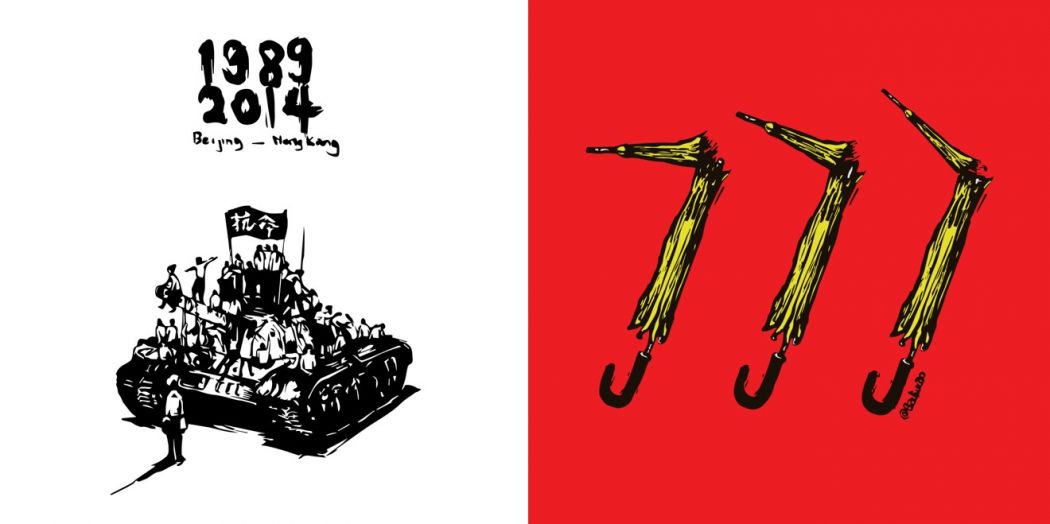
“I feel honoured to have my work shown in Hong Kong, to Hongkongnese people,” he says, citing the city’s yearly tradition commemorating the Tiananmen massacre, alongside 2014’s Umbrella movement, as sources of inspiration.

An artist who is increasingly concerned with China’s creeping surveillance tactics alongside the diminishing platforms and spaces for free expression, Badiucao cited the kidnapping of the Causeway Bay booksellers in 2015 as a reason for not wanting to come to Hong Kong.

The threat of China’s creeping encroachments in Hong Kong runs through the show. “I chose Hong Kong as the location [for the show]. It means a lot to me. I see Hong Kong as a lighthouse for the future of China. We can be better, as Chinese people,” he says.

His esteem for Hong Kong carries darker fears for the future of the territory. “I think we are witnessing the dying of Hong Kong,’ he says.

If the cartoonist sees Hong Kong both as a potential beacon and a mortuary, then what does that mean for the people who live here? For Badiucao, who believes that without freedom of expression, there is no art – the only thing one can do is exercise one’s freedoms while one can – either openly or otherwise.

“I think the best way to defend human rights is to practice it. If you don’t do that, it’s like trying swim against the opposite current. You have to protect your freedom… and it’s important not to give up,” he says.
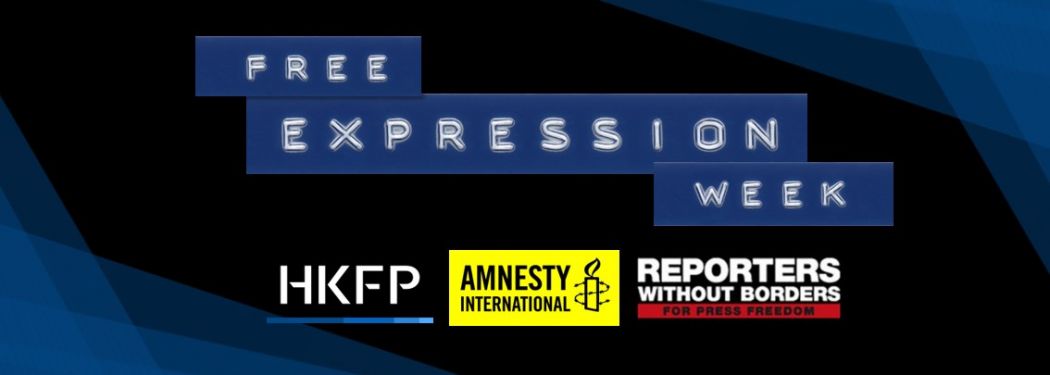
Other Free Expression week events will be held as normal on Monday and Wednesday.
